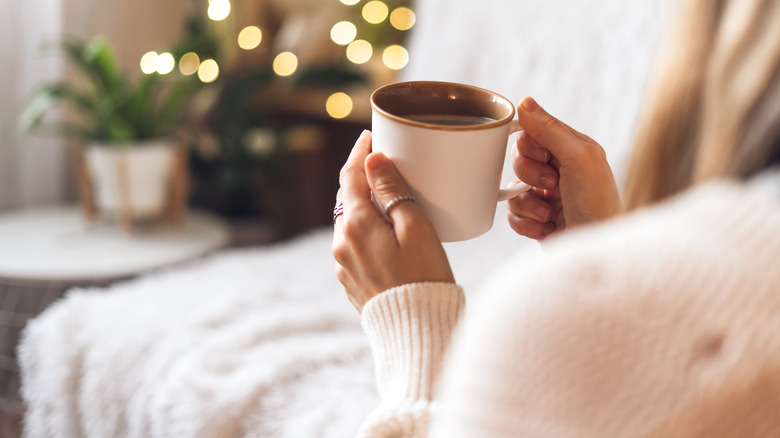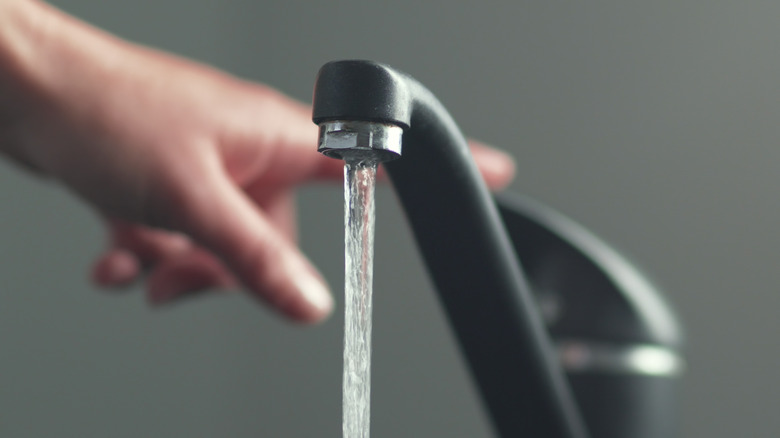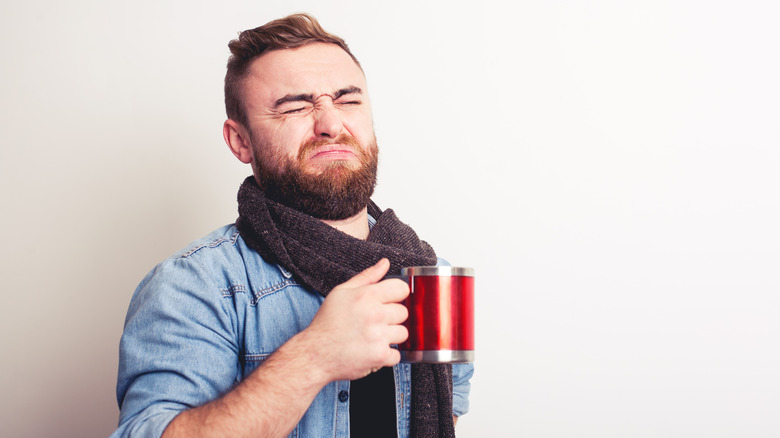Why You Should Think Twice Before Using Tap Water In Your Keurig
If you're one of those people who just can't wake up in the morning without a cup of coffee – or two or three — then you know how convenient a Keurig can be. Just roll out of bed, pop in a K-cup of your favorite brew, and hit that flashing blue button. Oh, and make sure you remember to put a mug under the dispenser first!
Of course, there's probably nothing more annoying than waking up to an empty water tank on your Keurig. To save time or money, you might be tempted to fill it straight from the tap rather than using filtered water, but there are good reasons why you shouldn't, says John Moretti, coffee expert and creator of BaristaJoy. Really it comes down to preserving the life of your machine as well as making your best cup of coffee, Moretti says. You can still make coffee using tap water, but it will be even better if you don't.
Mineral deposits can clog your Keurig
The problem with tap water is that it contains minerals, especially if it is hard water. The U.S. Geological Survey states that hard water is water that contains high levels of the minerals calcium and magnesium dissolved in it. When these minerals are in tap water in high amounts, it can make it difficult to rinse off soap and it may take more detergent to get your laundry clean. When hard water is heated, like in a coffee maker, it can also form deposits inside the machine and clog it up.
This mineral buildup can shorten the lifespan of your coffee maker. Coffee Brewster says the average lifespan of a Keurig is about five years, adding that proper maintenance may extend this. While Keurig recommends periodically descaling your machine, it is easy to forget. Not having a large mineral build up in the first place is going to be much better for the life of your Keurig.
Tap water makes bad-tasting coffee
The Barista Institute explains that good-tasting water is very important to obtaining a good-tasting cup of coffee. Tap water can have several things present in it that may not be visible to the naked eye, but do affect its smell and flavor, including minerals, chlorine, copper, iron, residues from pollution, and microbes. Although tap water is safe to drink, that doesn't necessarily mean that it tastes fresh or is free of offensive flavors or odors.
Moretti says when it comes to the Keurig 2.0, your best option is filtered water (via BaristaJoy). It has sensors that are used to detect the water level, explains Hot Coffee Brewing, which require the presence of minerals. Many machines come with built-in filters, but you can also filter it before putting it in the machine. However, bottled water is good for low-end Keurigs, Moretti says. This will give you a good cup of coffee without much mineral build-up. Distilled water may be your best bet though since it is free of minerals and bad tastes.



